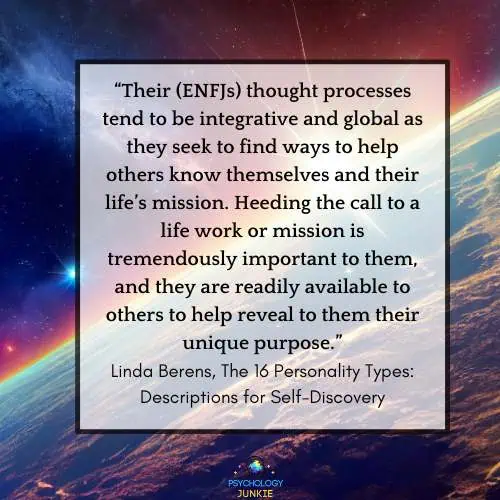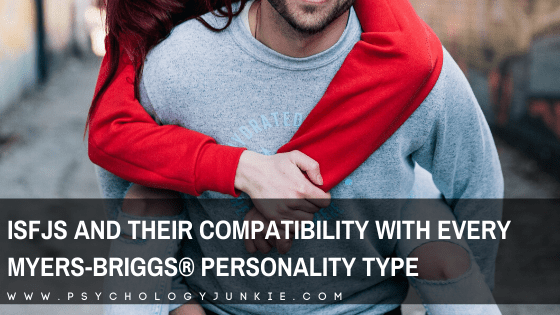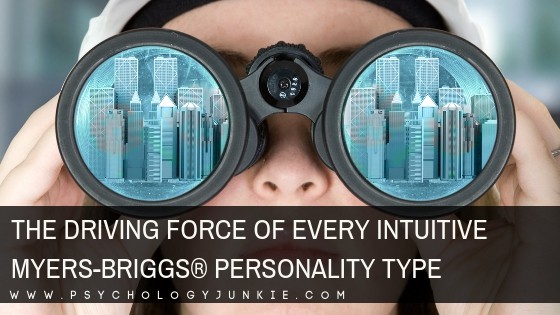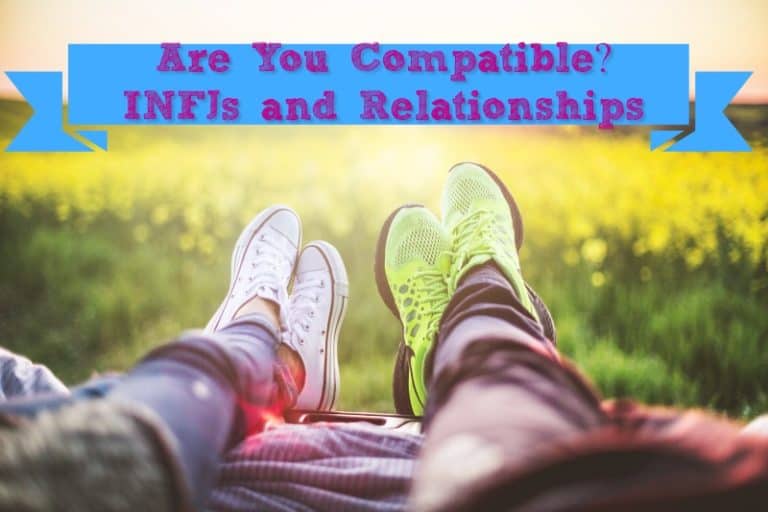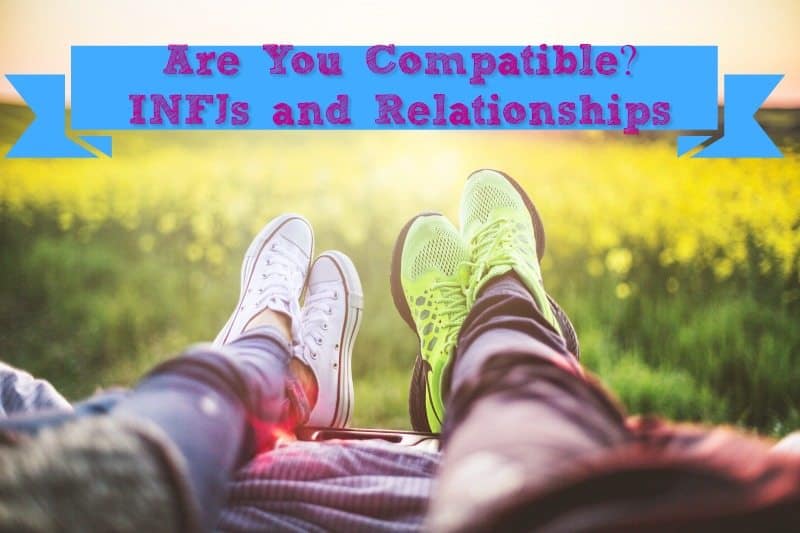The Blessing and the Curse of Being an ENFJ Empath
In the world of personality, I’ve rarely seen a type more empathic, relational, and warm-hearted than the ENFJ personality type. ENFJs, or “The Mentors” as I like to call them, are driven to connect deeply and intimately with others. These are the people who want to know your biggest dreams, hopes, fears, and aspirations. Often they act as guides to draw people towards their truest potential. If you’re lucky enough to know an ENFJ you’ve probably experienced their insight, depth, and empathy firsthand.
But all this empathy can be both a blessing and a curse. It’s not always easy being the guide. It’s not always easy absorbing everyone else’s feelings and being drawn to guide people through sometimes messy personal problems.

Not sure what your personality type is? Take our questionnaire to find out!
Understanding the ENFJ Personality
But before we go on, let’s take a look at the basics of the ENFJ personality type.
ENFJs, one of the 16 personality types identified by the Myers-Briggs Type Indicator (MBTI®), are known for their charisma, empathy, and proficiency in connecting with others. These individuals are deeply relationship-focused, drawing satisfaction from helping others realize their potential and achieve their dreams.
For ENFJs, life is all about relationships. They see the potential in everyone and strive to be mentors, confidantes, guides, and friends. The interpersonal connections they forge give them a sense of meaning and purpose.
The Blessings: A Natural Mentor and Friend
It’s not all bad being an empath. ENFJs are energized by connecting with people and getting on a similar wavelength and “vibe.” They enjoy the process of becoming intellectually, spiritually, and emotionally in synch with another human being.
Linda Berens captures this in her book, The 16 Personality Types: “They often find themselves acting informally as counselors, even if that is not their profession…Sometimes they find themselves knowing what they do not want to know, yet to shut off their empathic knowing is to shut off a vital life force.”
ENFJs as Mentors: ENFJs naturally step into the role of a mentor, providing guidance and support to those around them. Their ability to see the potential in others allows them to give insight and wisdom to people who are struggling to find their way or make the right decisions.
ENFJs as Friends: Because relationships are so important to ENFJs, they invest heavily in their friendships. They are often the friend who listens, offers advice, and is there in times of need. Because of this, they tend to be in high demand in their social circles.
The Curse: Overburdened by Others’ Emotions
Being an empath does come with its downsides, however. Sometimes ENFJs struggle to balance all the responsibilities in their lives because their phones are constantly blowing up with calls and texts, their emails are full of people’s life stories, and they have a job or families to consider as well.
As Linda Berens notes, “The downside is that they can become overburdened with others’ problems. They invest a lot in all their relationships, work or personal, creating a standard others may not be able to return.”
Drowning in Emotions: ENFJs can struggle to separate themselves from the emotions of those around them. They often act as emotional sponges, absorbing every mood and feeling around them. Over time, this can lead to emotional exhaustion. They are often seen as the go-to person for emotional support, which, while rewarding, can be draining.
Overworking to Please: ENFJs often overwork themselves to please others and may struggle to say “No.” Their desire to help and be there for others can come at the expense of their well-being. This constant search for the ideal relationship and inspiration, both to give and receive, can be exhausting and unfulfilling if not balanced with self-care.
Being Underestimated: While ENFJs are empathic, that’s not all they are. Many ENFJs find themselves dismissed intellectually or underestimated for their other skills. Instead, they are often seen as “the bubbly ones” or “the friends”. My ENFJ sister often struggles with this issue. People sometimes assume that her empathic, giving, and compassionate nature is all there is to her. Her intellectual intelligence—she was a valedictorian in college—and her insight and strategic prowess are often dismissed. The number of times people have “mansplained” things to her that she already understands is ridiculously high.
I know another ENFJ friend who faces similar challenges. He is often seen as “the nice person” or “the charismatic one,” but his intellectual achievements frequently go unrecognized. While his kindness is appreciated, his depth and expertise can be overlooked because people have placed him in a box.
Ways to Cope:
- Prioritize Alone Time: If you’re an ENFJ, make sure you’re finding time to get away from the hustle and bustle of everyday life. Solitude gives you space for introspection, helping to recharge your batteries, gain clarity, and get in touch with the intuitive side of your personality.
- Immerse in Nature: Spending time in nature can be profoundly healing. Whether it’s a walk in the park or a hike in the mountains, connecting with the natural world offers you a chance to escape, breathe, and ground yourself in the present.
- Practice Mindfulness: Mindfulness and meditation are powerful tools for ENFJs. Making even 15 minutes a day for a mindfulness practice can help you to calm your mind, reduce stress, and maintain a balanced emotional state.
- Set Healthy Boundaries: For ENFJs, learning to say “No” is an act of self-preservation. Setting boundaries ensures that you don’t become overwhelmed by others’ demands and can focus on your own needs. It can be hard at first to set boundaries; you may feel like you’re not being as caring as you should be. But think of it as putting on your own oxygen mask first. You can’t be the kind of friend you want to be if you’re completely depleted. The more inspired, energized, and calm you are, the more inspiring and energizing you will be.
- Nurture Inner Peace: Take time for activities that promote inner tranquility, such as reading, yoga, or journaling. This gives you a chance to get to know yourself, get grounded, and experience more inner equilibrium.
What Do You Think?
Do you struggle with overwhelm and stress because of your empathic tendencies? Do you have any tips or insights for fellow ENFJs? Let us and other readers know in the comments!
Find out more about your personality type in our eBooks, Discovering You: Unlocking the Power of Personality Type, The INFJ – Understanding the Mystic, The INTJ – Understanding the Strategist, and The INFP – Understanding the Dreamer. You can also connect with me via Facebook, Instagram, or Twitter!
Other Articles You Might Enjoy:
All About the ENFJ Personality Type
INFJ vs. ENFJ: What’s the Difference?
References:
The 16 Personality Types: Descriptions for Self-Discovery by Linda V. Berens and Dario Nardi (InterStrength Publishing, 1999)
Subscribe to Our Newsletter

Want to discover more about personality type? Get the inside scoop with Susan Storm on all things typological, along with special subscriber freebies, and discounts on new eBooks and courses! Join our newsletter today!


